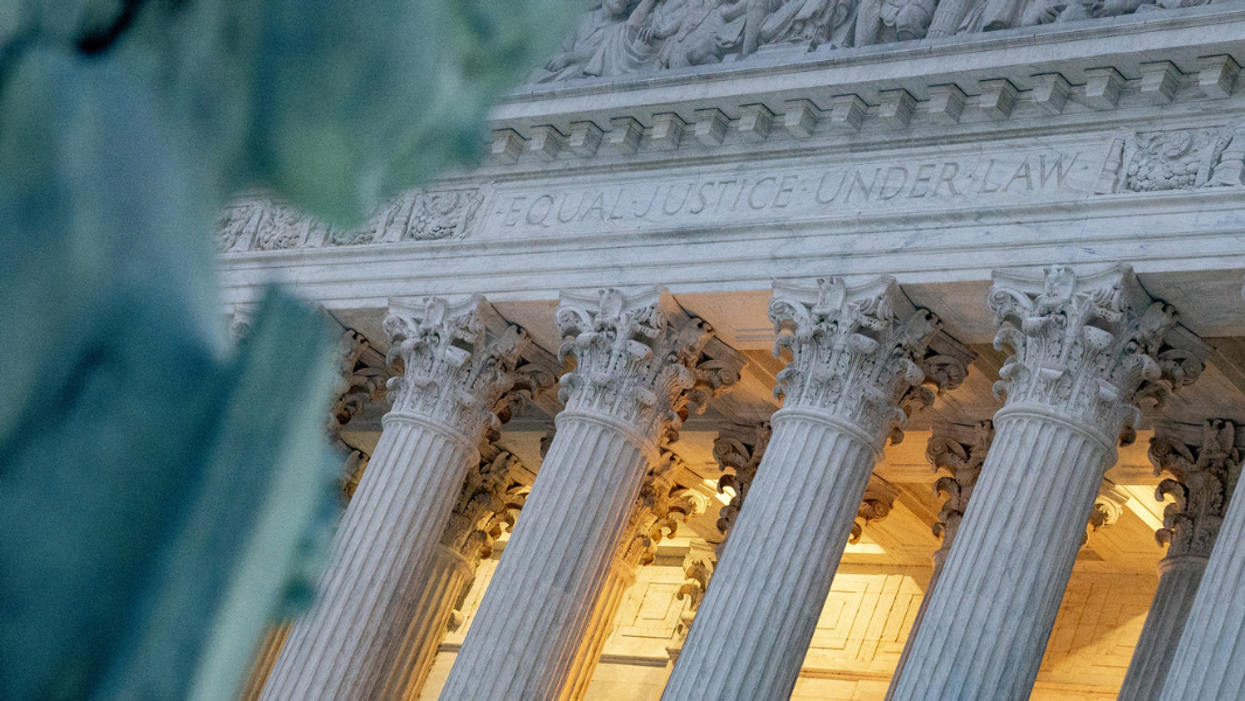William Natbony is an attorney and business executive specializing in investment management, finance, business law and taxation. He is the author of The Lonely Realist, a blog directed at bridging the partisan gap by raising questions and making pointed observations about politics, economics, international relations and markets.
In writing “The Truly Supreme Court” earlier this month, I speculated about the possibility of chaotic consequences that necessarily would follow from Moore v. Harper should the Court endorse the “state legislature theory” and determine that a state legislature has the Constitutional authority to set the rules for federal elections even if those rules violate the state’s constitution. Last week, the Court rejected that “fringe theory” and news outlets have focused on that rejection. However, the politics of the Court’s majority and dissenting opinions deserve a closer look.
Determining what the Constitution means is not a straightforward task. Lawyers and judges can debate Constitutional questions ad nauseam without reaching consensus, pointing to different interpretations based on subtle wording differences, the writings of the Founders (including Federalist Papers’ authors Madison and Hamilton), eminent law professors, and illustrious Court historians. Court decisions therefore often are a matter of the justices’ predispositions, whether philosophical or political. Although the nine Supreme Court justices are (or are supposed to be) Constitutional scholars, each is a human being with personal views of how the Constitution, and hence America, should function. The Court operates accordingly.
The Moore Court split 6-3 in ruling that North Carolina’s legislature could not gerrymander electoral districts in violation of North Carolina’s constitution. Chief Justice Roberts wrote the majority opinion, joined by the three liberal justices, plus Justices Kavanagh and Barrett. As Chief Justice, Roberts selected himself as the author of this seminal opinion so that he could choose the appropriate words to address and resolve issues of jurisdiction, Federalism, states rights and the role of the Supreme Court. Today’s Supreme Court after all is “The Roberts Court” and, throughout his tenure as Chief Justice, Roberts has been sensitive to his legacy. The dissent in Moore was written by Justice Thomas, who was joined by Justices Alito and Gorsuch. Justice Thomas vociferously disagreed with every aspect of the majority opinion in a biting dissenting opinion.
The way the Supreme Court operates is that the nine justices individually review both sides’ written and oral arguments, after which the justices meet, indicate where each stands, and discuss the ensuing process. The nature of the majority and dissenting opinions in Moore suggests that the Chief Justice took the lead, perhaps persuading a majority of the justices to join him. The dissenters accordingly focused their dissent on the reasons why the Court should not have decided the case in the first place.
In writing for the majority, Chief Justice Roberts first had to explain why the Court had jurisdiction. An intervening decision by the North Carolina Supreme Court seemingly had made a Supreme Court decision unnecessary – in legal terms, “moot.” Although the majority determined that the Court indeed had jurisdiction (using a somewhat convoluted analysis), Justice Thomas’ cogent dissent makes a persuasive case for mootness…, but then, had the dissenters obtained a majority, they might have analyzed the mootness facts differently. The Chief Justice then engaged in a comprehensive historical analysis that convincingly rejects the state legislature theory, holding that, “The Elections Clause [of the Constitution] does not insulate state legislatures from the ordinary exercise of state judicial review…. A state legislature may not ‘create congressional districts independently of’ requirements imposed ‘by the state constitution with respect to the enactment of laws.’” The Moore decision therefore resoundingly closes the door on the possibility of state legislatures overruling federal authority with respect to national office elections.
As I noted earlier this month, “if the Court had upheld the North Carolina legislature’s unfettered power to interpret election laws, all 50 States’ legislatures would be free to violate their own constitutions to set voting rules and allow their legislatures to use partisan criteria to gerrymander voting maps. That would have created quite a 2024 election scenario!” It is far better for American democracy that the Court eliminated this additional source for partisan conflict by rejecting the “state legislature theory,” which presumably was precisely the Chief Justice’s intention.


















 Senate Committee on Commerce, Science, and Transportation ranking member Sen. Maria Cantwell (D-WA) (R) questions witnesses during a hearing in the Russell Senate Office Building on Capitol Hill on February 10, 2026 in Washington, DC. The hearing explored the proposed $3.5 billion acquisition of Tegna Inc. by Nexstar Media Group, which would create the largest regional TV station operator in the United States. (Photo by Chip Somodevilla/Getty Images)
Senate Committee on Commerce, Science, and Transportation ranking member Sen. Maria Cantwell (D-WA) (R) questions witnesses during a hearing in the Russell Senate Office Building on Capitol Hill on February 10, 2026 in Washington, DC. The hearing explored the proposed $3.5 billion acquisition of Tegna Inc. by Nexstar Media Group, which would create the largest regional TV station operator in the United States. (Photo by Chip Somodevilla/Getty Images)
